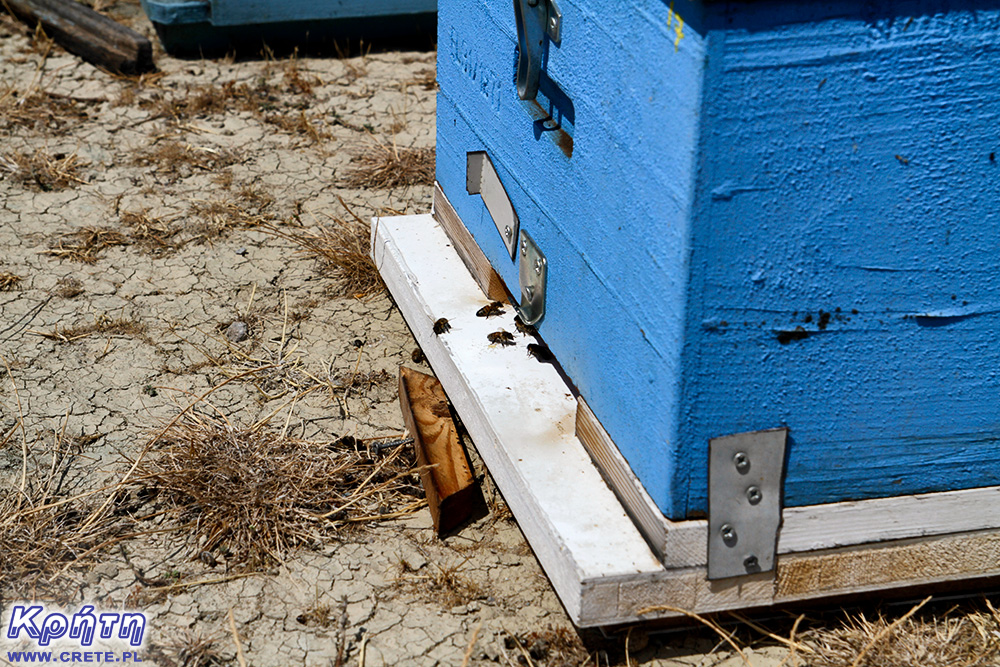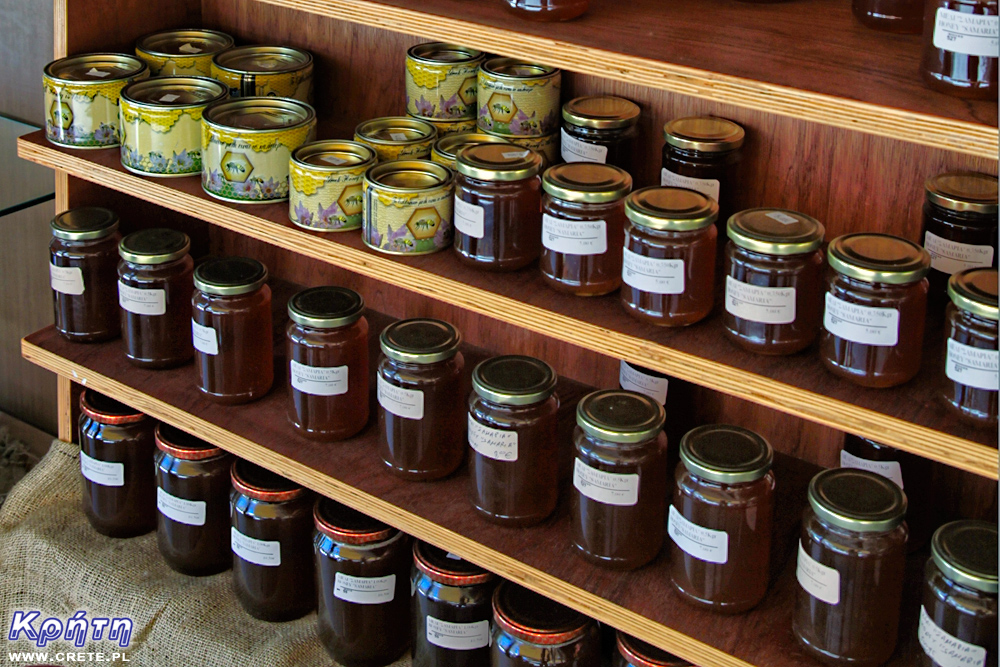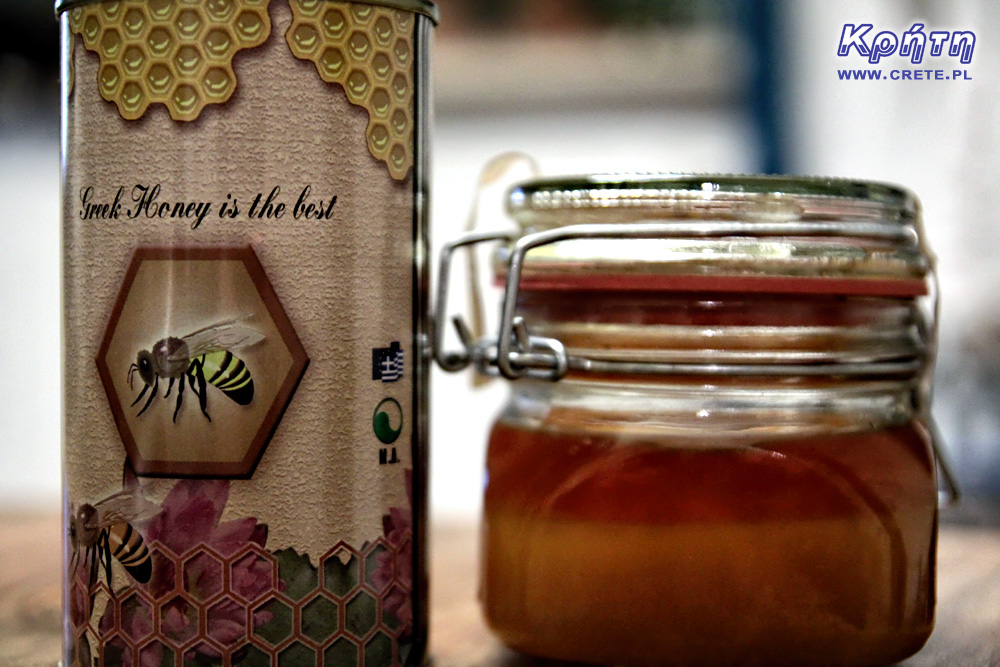
 2023-11-06 20:28:02
2023-11-06 20:28:02
Reduced olive oil production is not the only concern for Greeks this year. Unfortunately, the consequence of ongoing climate change is also huge problems with honey production. Greek beekeepers have already announced that this year's production will be one of the lowest in decades, and consumers must take into account numerous attempts at adulteration. This is an important topic because honey is one of the most frequently purchased products in Greece.
The beekeeping industry has been warning about problems from the beginning of the season. According to first estimates, the production of Greek honey will be severely reduced. As Ioannis Senko, president of the Apis Era Beekeeping Cooperative and secretary general of the Larissa Beekeeping Association, says: “ Even the main regions such as Evia and Chalkidiki, which produce pine honey, could not cope this year. The exception is Thassos, but transport costs from here are three times higher .
Loss of income is certain because no attempt to raise prices for producers will be able to compensate for the losses caused by the reduced volumes of honey obtained.
Signs of upcoming problems were already visible during last winter, which was warm and therefore the bees' biological cycle was destabilized. Hopes for an improvement in the spring were also dashed, as April this year was cold, while May was characterized by heavy rains. These weather conditions were not favorable for honey bees because they did not allow hives to develop.
Flowering problems in the summer, caused by prolonged drought, resulted in reduced production of both honey and royal jelly. Giorgos Hitoglou, president of the Beekeeping Association of Thessaloniki, who owns 1,000 hives, says that this year he managed to produce as much honey as someone with 50 hives would produce.

The problems culminated in disastrous fires in August and floods in September. Based on reports of damage to apiaries, 112,000 hives were destroyed in Thessaly and approximately 2,500 hives were burned in the Evros region. However, as industry specialists explain, the losses in Thessaly affected not only the producers of this region. Hives from other productive regions of Greece were destroyed and were transported to Thessaly during this unlucky period.
Currently, the balance of beekeepers is negative because, in addition to production losses, they incur constantly increasing costs of maintaining insects, including the costs of substitute food and regular relocation of hives to other regions. Currently, average production costs are between 4 and 4.5 euros/kg of honey.
Beekeeping is practiced in all EU countries and is characterized by different production conditions, productivity and beekeeping practices.
According to the latest honey market report, published in April this year, the EU remained the second largest global honey producer in 2021, with a total production of 215,000 tonnes, compared to 230,000 tonnes in 2020. A leading power in the sector honey remains China, which showed a production of 486,000 tons in 2021, and for comparison in 2020 compared to 466,000 tons in 2020.
At the same time, the EU is an importer of honey from third countries because it still does not produce enough honey to cover its own consumption. Currently, the self-sufficiency rate is approximately 60%.
For this reason, imports are necessary to cover domestic consumption in Europe, with China and Ukraine remaining the main suppliers to the Community. According to the same report, in 2020 the EU imported 174,912 tons of honey, spending a total of EUR 359,961,000, and in 2021 173,511 tons worth EUR 406,804,000.

An incomplete legal framework, limited controls and constant pressure on the production price are constant problems in the beekeeping world. Especially Greek honey, which is known and appreciated by consumers, is very often counterfeited and adulterated. In practice, honey is among the 10 most frequently adulterated food products. The Joint Research Center of the European Commission warns that as much as 46% of honey imported to Europe is counterfeit. The tested samples included sugar syrups made from rice, wheat or sugar beets, as well as other additives and dyes.

As Mr. Senko says: " although we will reduce production this year, you will see that the price of honey on the shelves will remain exactly the same. How is it possible that at the moment, when production costs range from 4 to 4.50 EUR/kg, we can find packaged honey on store shelves for 5 and 6 EUR/kg? This is unthinkable ."
At the same time, Senko draws attention to the dangers of selling imported honey as Greek and asks the competent authorities to take specific actions to protect both the product and producers. Of course, import is necessary, but it should be legal.
 2023-11-06 20:28:02
2023-11-06 20:28:02
Komentarze
Wypełnij poniższy formularz aby dodać komentarz
lub kliknij w poniższy link aby skorzystać z możliwosci komentowania przez facebooka:
https://www.facebook.com/crete.poland/posts/723515033156097